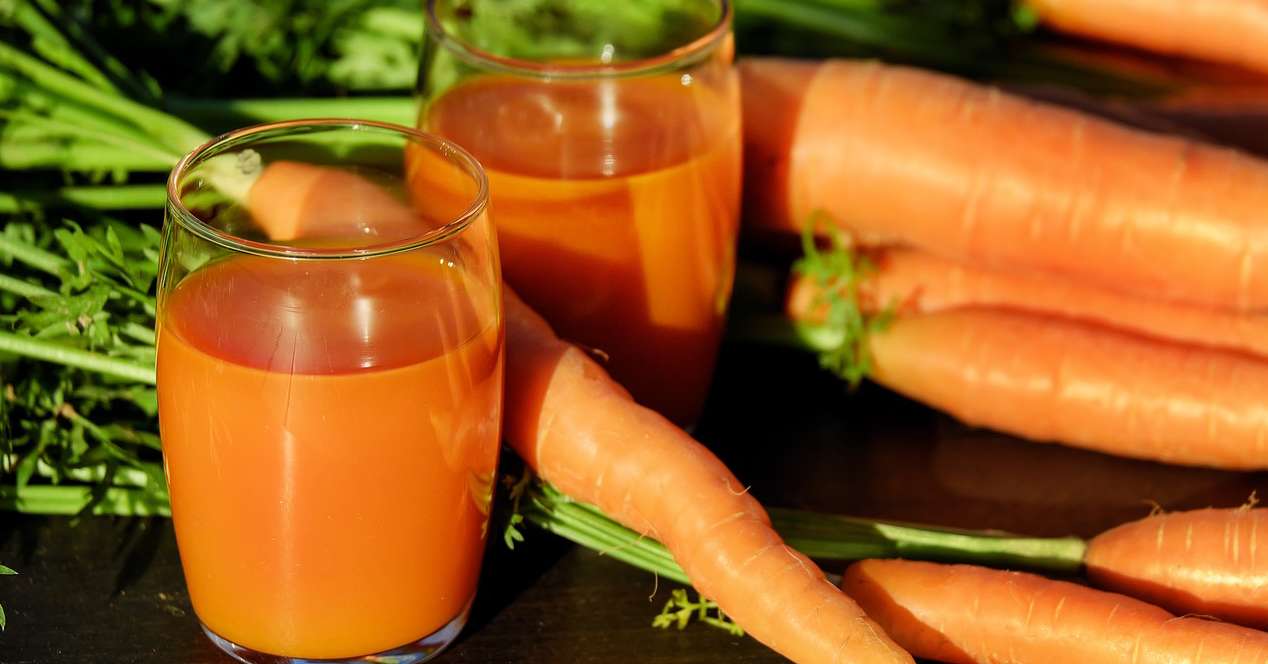
Any health and nutrition expert will recommend that you have a healthy and balanced diet to enjoy good health. It is important to add all the macronutrients and micronutrients for our body to function properly. Among them, vitamin A cannot be missing.
Within those micronutrients we find numerous vitamins, and on this occasion we will tell you about the benefits that vitamin A provides.
Why is it important to consume Vitamin A?
Vitamin A is a very important nutrient. It is characterized to a greater extent by having great antioxidant properties, so our cells are protected from free radicals (causing cell aging). This vitamin is fat-soluble and is essential for hair growth and skin maintenance, as well as necessary for vision and bone growth.
It is well known in the field of vision, which is why eating carrots (like rabbits) is said to improve eye health. And it is true, vitamin A is responsible for stopping the loss of visual acuity, prevents deterioration of the retina and protects it from possible diseases.
Also, it reduces the risk of developing some age-related eye diseases (macular degeneration and cataracts) and helps prevent other diseases related to eye strain (glaucoma). It can even improve our night vision.
Deficiency is one of the leading causes of blindness in developing countries. By contrast, most people in developed countries get enough vitamin A from their diet. The Recommended daily allowance it is 900 mcg for men, 700 mcg for women, and 300–600 mcg for children and adolescents.

Food of animal origin
There are numerous foods rich in vitamin A, although its available presence in meat and fish is not very extensive.
Herring
An 85-gram serving of pickled Atlantic herring provides 219 mcg of vitamin A, or 24% of a person's recommended daily value. Herring is also a good source of protein and vitamin D.
As a fatty fish, herring is an excellent choice for those who want to increase their intake of Omega-3s for heart and brain health. In fact, experts recommend eating 2 servings of oily fish each week.
Cow liver
Animal livers are among the richest sources of vitamin A. That's because, like humans, animals store vitamin A in their livers. An 85-gram serving of fried beef liver contains 6,582 micrograms. This equates to 731% of the Daily Value.
The Daily Value allows us to easily compare the nutrient content of different foods. It is a percentage based on the recommended daily intakes of key nutrients. Like organ meat, liver is rich in protein. It also contains many other nutrients, such as copper, vitamin B2, vitamin B12, iron, folate, and choline.
Lamb liver and liver sausage are other rich sources of vitamin A.
Cod liver oil
Fish livers are also excellent sources of preformed vitamin A, with 1 tablespoon of cod liver oil providing 4,080 mcg. This and other fish oils are among the richest sources of Omega-3 fatty acids, which help fight inflammation and protect the heart.
Cod liver oil is also an excellent source of vitamin D, with one tablespoon containing 170% of the recommended daily amount. According to experts, vitamin D boosts immunity and plays a role in bone health. It can also protect against depression.

Vegetables rich in vitamin A
The body can make vitamin A from carotenoids found in plants. These carotenoids include beta-carotene and alpha-carotene, which are collectively known as provitamin A. Depending on our genetics, the following vegetables may provide considerably less vitamin A than indicated.
French Fries
A whole sweet potato, baked with the skin on, provides 1,403 mcg of vitamin A, which is 156% of the recommended daily value. The vitamin A present in this tuber is in the form of beta-carotene. Some studies also suggest that beta-carotene may help protect against cancer, such as prostate cancer.
Sweet potatoes are also low in calories, rich in vitamin B6, vitamin C, and potassium, high in fiber, and have a low glycemic index, which helps control blood sugar levels.
Broccoli
Broccoli is another healthy source of vitamin A, with a half cup providing 60 mcg. Half a cup of broccoli contains only 15 calories and is also an excellent source of vitamin C and vitamin K.
Vitamin K is essential for bone metabolism and blood clotting, while vitamin C improves immune function and has antioxidant and anti-inflammatory properties.
Eating cruciferous vegetables, such as broccoli, may reduce a person's risk of developing some types of cancer, due to the presence of a substance called sulforaphane.
sweet red pepper
Half a cup of raw sweet red bell pepper provides 117 mcg of vitamin A, which is 13% of the recommended daily value. This serving only contains about 19 calories and is rich in vitamin C, vitamin B6, and folic acid.
Bell peppers are a great source of antioxidants like capsanthin. They also contain quercetin, which has anti-inflammatory and antihistamine properties.
Carrots
Carrots are rich in beta-carotene. Half a cup of raw carrots contains 459 mcg of vitamin A and 51% of the recommended daily allowance. A large carrot contains around 29 calories. This makes it a light and healthy food, especially when eaten with hummus or guacamole.
Carrots are also high in dietary fiber, which can help prevent constipation and promote better gut health.
black eyed beans
Beans are an excellent plant-based source of protein and are also high in fiber. Each cup of boiled black-eyed peas contains 66 mcg of vitamin A and 7% of the RDA. Beans are also a good source of iron.
Studies support the role of various types of beans in promoting heart health. Bean consumption has been linked to a lower risk of heart disease and high blood pressure. Eating beans has also been shown to reduce the risk of type 2 diabetes.
Spinach
Like other green leafy vegetables, spinach contains a large amount of nutrients. Each half cup of boiled spinach provides 573 mcg of vitamin A, which is 64% of the recommended daily value.
This serving also provides 17% of the daily iron and 19% of the daily magnesium. Magnesium plays a role in more than 300 processes in the human body. Also, spinach can lower blood pressure and improve heart health.

Fruits
Vitamin A is generally more abundant in vegetables than in fruits. But some types of fruit provide good amounts.
Mango
A whole raw mango contains 112 mcg of vitamin A, or 12% of the recommended daily value. Mangoes are rich in antioxidants and dietary fiber, which may contribute to better bowel function and help control blood sugar.
This fruit is delicious on its own, but it works just as well in a tropical fruit salad or mango salsa. It can also be eaten with a little lemon on top.
Melon
Half a cup of this summer melon provides 135 mcg of vitamin A, which is 15% of the recommended daily value. Cantaloupe is a great source of vitamin C, which boosts immune function and protects against various diseases.
We can fresh melon alone, with other fruits or in a smoothie. It is recommended to take advantage of the seasonal fruit to obtain a greater amount of vitamin A.
Dried apricots
For a sweet snack rich in vitamin A, dried apricots are a good alternative. Ten dried apricot halves contain 63 mcg of vitamin A, which is 7% of the recommended daily allowance. Dried fruits are also high in fiber and antioxidants.
However, dried apricots are also high in sugar and calories, so it's important to eat them in moderation.
Effects of abusing Vitamin A
Everything in excess is bad, even if they are healthy foods. Ingesting too much vitamin A from supplements could end up generating a hypervitaminosis a. That is, a vitamin toxicity. Its symptoms are just the inverse of the benefits: dry skin, hair loss, fatigue, headache, loss of appetite, liver problems, and vomiting.
Even, with the passage of time, you can lose muscle coordination, have blurred vision and constant dizziness.
As if that were not enough, it can also cause problems in fetuses. It is best to ingest vitamin A through food. In this way we ensure a correct daily dose.